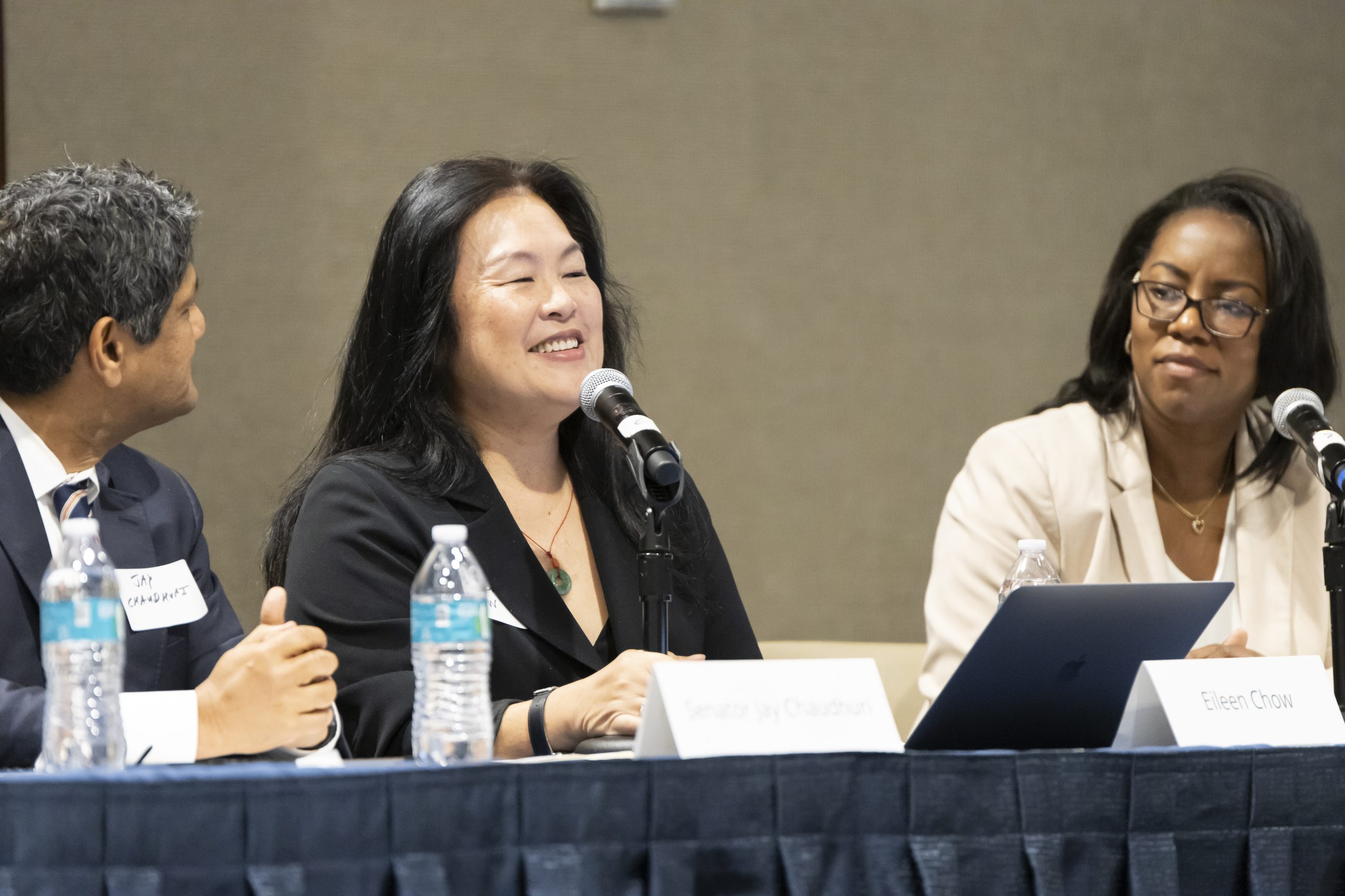
Combating Hate and Bias Recap:
Fighting Racism, Hate, and Bias at the State and Local Levels
Rosa Golchin ('24)
Dec 6, 2023
The second panel in the Combating Hate & Bias conference explored how hate, bias, and racism challenge state and local communities. Speakers from academia and state government offered insights into the ways in which communities are fighting for a future that is free of racial discrimination, violence, and oppression.
The panel featured North Carolina State Senator Jay Chaudhuri and Eileen Chow, Associate Professor of the Practice in Chinese and Japanese Cultural Studies and Director of Story Lab at Duke University. Professor Chow is also the Director of Graduate Studies for Duke Asian Pacific Studies Institute's East Asian Studies graduate program, and a founding faculty member of Duke Asian American and Diaspora Studies. Senator Chaudhuri, in his previous role as Special Counsel to Attorney General Roy Cooper, helped lead an investigation by all 50 Attorney General’s that resulted in a landmark agreement with the two leading social networking sites, MySpace and Facebook. In his current role as State Senator for District 15, he has led the fight on funding class sizes from kindergarten to third grade. He also advocated for reducing gun violence in North Carolina schools.
The discussion was moderated by Stelfanie Williams, Vice President for Community Affairs at Duke University. Williams guides Duke’s engagement efforts to advance the well-being of communities through education, employment, and other community partnerships in coordination with leaders, local government, and other stakeholders.
The conversation centered on hateful sentiment and hate crimes with a focus on North Carolina. With regard to their personal encounters with and efforts to ameliorate the circumstances that lead to hate and hostility, Professor Chow spoke to her experience in the classroom, while Senator Chaudhuri drew from his work in the state senate.
In response to a question posed by Williams about how to find strength in community during times of increasing expressions of hate and hostility, Professor Chow shared an exercise she conducts in undergraduate courses, asking students to answer the question “how did you get here today” on an index card with a picture. These cards are exchanged with another student in the course, and they illustrate the complexities of expressing oneself and one’s identity. She hopes this practice can “replicate the classroom as a community” and help “lean into the fact that even within this beautiful rich bubble that is Duke, we need to think about how we thicken our ties to one another.” She also pushed back against the common narrative that professors in departments such as her own, Asian and Middle Eastern Studies, are unwilling to be critical of their fields. She believes, rather, that “justice is only possible when you understand your history.”
Senator Chaudhuri expanded on Professor Chow’s comments by referring to the hate crimes committed against Asian-Americans, exemplified by the murder of Vincent Chin and against Indian-American communities in New Jersey and Kansas where two Indian-Americans were murdered in 2017. He reflected,“As I think about what prompted me ultimately to introduce the Hate Crimes Prevention Act, it was both the legacy Vincent Chin left, which was credit in many ways for sparking the Asian-American movement for civil rights, but also what happened in New Jersey which signals what can happen when you have the growth of an immigrant community that can feel threatening to those who were established in the community before.” He recognizes the rise of hate groups and hate crimes as forming the backdrop against which the Hate Crimes Prevention Act was developed. An important part of this act is improving the system for documenting and reporting hate crimes, which currently occurs on a voluntary basis, to provide a better grasp on the groups and individuals being targeted.


